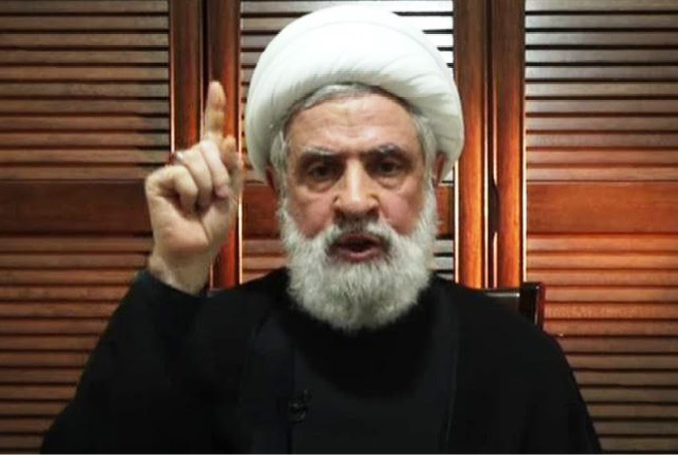
After a period of uncertainty, Hezbollah’s latest address signals a renewed commitment to its original goals, suggesting a more assertive future under its new leadership.
Hezbollah’s Secretary General, Sheikh Naim Qassem, delivered what was perhaps his most important speech to date late last week. The address indicated that the Lebanese resistance group had not collapsed and has been slowly rebuilding its capabilities with the goal of confronting Israeli aggression.
After months of debate surrounding the direction that Hezbollah was heading, its leader, Sheikh Naim Qassem, has finally answered everyone’s questions. Many analysts previously speculated that the Lebanese Party was going to hand over its weapons, or at least integrate its forces into Lebanon’s national army. The chances of this happening now appear slim.
The Speech
When Sheikh Naim Qassem first took over as Secretary General of Hezbollah in October of 2024, his speeches were a far cry from the confident and powerful addresses of his predecessor, Seyyed Hassan Nasrallah. Sheikh Qassem was visually shaken by the position in which he and his organisation were put, especially as the second in line to take over as Secretary General, Hashem Saffiedine, had been assassinated.
Even following the Lebanon-Israel ceasefire on November 27, Sheikh Qassem’s speeches did not properly address the public’s concerns under such dire conditions. Put in an impossible position as a Hezbollah leader, he claimed that his group had achieved a victory even greater than Lebanon’s triumph over Israel in 2006.
Technically, the mere fact that Hezbollah had managed to not only survive but also fight a two-month-long war while preventing significant Israeli ground advances into southern Lebanon and continually launching new waves of previously unrevealed missiles and drones, did amount to a significant achievement in the Party’s history.
However, the language of “victory” did not sit well with many, especially given the immense losses suffered. This then contributed to the idea that Hezbollah was trying to cover up the disintegration of the Party.
In later speeches, Sheikh Qassem would go on to address all the relevant points of the conversation piece by piece, admitting to losses, while explaining that in other areas the group had managed to score historic achievements.
Then, last Thursday, in a speech that was originally intended to be delivered earlier but was postponed due to Israeli airstrikes, Sheikh Qassem gave an address that nobody was expecting in terms of its energy and firm stances.
Near the beginning of the speech, he announced that there were two primary categories of obligations that the resistance group adheres to: The first being its religious considerations, and the second being its national considerations.
Sheikh Qassem stated clearly that under its religious obligations, which govern its course, the group is not only committed to liberating Lebanon but also occupied Palestine. He made it clear that on the question of national considerations, the Party aligns with all Lebanese, yet on the religious obligations, they are set apart.
The way in which the Hezbollah leader spoke about the conflict was perhaps the most radical that we have heard yet. He talked about how the course of every struggle between a liberation movement and an oppressive occupier consists of various confrontations before a final war of liberation.
He also explained to the Lebanese people that Israel had committed over 2,700 violations of the ceasefire since its implementation in November, while stating that the goals of the leadership in Tel Aviv are to occupy a large portion of Lebanon, with the aim of building illegal settlements on it and additionally to strip the Palestinian population of their refugee status.
In addition to this, Sheikh Qassem asserted that Israel does not need an excuse to attack Lebanon and that the Lebanese Army will not defend the nation’s sovereignty. He therefore stated that Hezbollah is a resistance force whose weapons are solely for confronting the Israeli occupier and will never lay down its arms under any circumstances.
Another point that the speech clarified was that talks between Hezbollah and the Lebanese State regarding security arrangements will have nothing to do with integration into Lebanon’s Army, nor disarmament. Pointing to “a certain Party” that seeks to drag Lebanon into a civil war in order to serve Israeli interests, the Hezbollah Secretary General did not name the Party or its leader, yet it was clear he was talking about Samir Geagea and the Lebanese Forces Party.
Furthermore, he stressed that Hezbollah is practicing strategic patience and will only enter a war at a time of its choosing, rather than fighting under conditions imposed upon it. Another point he made was that the Israelis are also calculating, and if they were in total control, they would have launched a larger war by now.
After Nasrallah
On September 27, 2024, the assassination of Hezbollah’s Secretary General, Sayed Hassan Nasrallah, shook the group to its core. This, combined with the assassination of most of the Party’s top leadership and the indiscriminate pager attack, only 10 days earlier, greatly impacted the ability of Hezbollah to function.
Following this, not only did the group have to attempt to restructure, root out spies within its ranks, and find alternative means of communication, but it also had to face an Israeli invasion from land, air, and sea.
Despite the murder of nearly 3,000 people across Lebanon, the majority of whom were civilians, in addition to the heavy blows dealt to its high and middle command, Hezbollah not only managed to survive but also prevented the Israeli military from successfully achieving the goals of their land incursion.
The group’s regular fighters, alongside allied Palestinian armed groups, the most prominent of which was the Popular Front for the Liberation of Palestine (PFLP), managed to foil various operations carried out inside southern Lebanon. In the end, even Israel’s Egoz special forces units were not capable of achieving their combat goals and were subjected to deadly ambushes.
However, despite the tenacity of Hezbollah’s soldiers, the group was placed in its weakest ever position. It was clear that the death of Nasrallah was going to impact the collective morale in a way never witnessed before; after all, he was the guide to each and every supporter of Hezbollah’s struggle against occupation. His speeches were not only insightful but provided the people with a sense of security and purpose in whatever the issue of the day was.
Suddenly, after seemingly always being there, the speeches as well as the leader himself were gone. This left a sense of emptiness in the hearts and minds of Hezbollah’s supporters in Lebanon, and it also caused a feeling of disbelief in the idea of victory. Still today, as we near six months since Nasrallah’s passing, many Lebanese Shia households and beyond are still in mourning. One Hezbollah supporter from South Lebanon even told the Palestine Chronicle that “we cry every day; it is like the feeling of the loss of our Seyyed never goes away”.
Notably, since the funeral of Seyyed Hassan Nasrallah in southern Beirut, for which over a million people showed up, Hezbollah has been continuing to mobilise its people and bring them to public gatherings. It is clear that they have also been rebuilding what was lost and restructuring their organisation.
Some prominent analysts have claimed that Israel was correct in saying that it destroyed the majority of Hezbollah’s weapons arsenal, yet there has been no evidence to support these allegations. In fact, the way Hezbollah forces fought on the ground indicates that the group has access to a great abundance of weapons like anti-tank munitions and suicide drones. Also, Hezbollah’s fighting force is estimated to be over 100,000 men strong, and those fighters have not been killed.
Where Hezbollah will struggle is in acquiring precision missiles and air defense weapons, but in terms of drones and light weapons, they still have no issue in receiving them. Other areas where the group will be tested are in its leadership, intelligence, and communications.
Israel has spent most, if not all, of its most effective cards already. The breaches made into Hezbollah’s communications network, along with the spies it used, are almost all exposed now, meaning that nearly two decades of intelligence work has been used, and it can be assumed that the means of infiltration will have to change.
While Hezbollah was previously a regional actor whose moderation was dependable, the new incarnation of the group may prove very unpredictable, similar to Hamas in the Gaza Strip. This is not certain, but given the opportunity to launch a devastating military attack on the Israelis, the group could end up committing much greater assaults than Hezbollah would have ever even considered in the past.
It is clear to anyone who speaks to people on the ground in Southern Lebanon that they feel the need for revenge and redemption after what has been done to them. While some 3,000 people who were murdered – primarily killed in South Lebanon, Dahiyeh [southern suburbs of Beirut], and the Bekaa Valley area – did not receive much attention in the media, it is important to put that death toll into perspective. This was the most deadly assault on the country since 1982.
If Sheikh Naim Qassem, who for the first time delivered a speech that rang with a similar confidence and conviction to those of his predecessor, is stating that liberating occupied Palestine is a goal for Hezbollah, then this should be taken seriously. At this time, it is difficult to tell, but it may just be that the Israeli decision to assassinate Sayed Hassan Nasrallah may only make Hezbollah a much more dangerous group to Israel’s survival.
(The Palestine Chronicle)
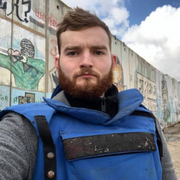
– Robert Inlakesh is a journalist, writer, and documentary filmmaker. He focuses on the Middle East, specializing in Palestine. He contributed this article to The Palestine Chronicle.

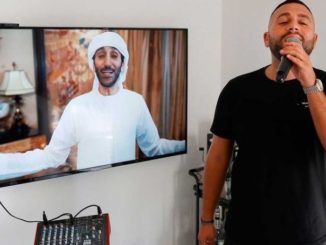
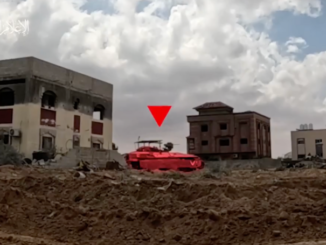
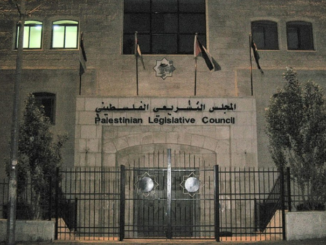




Be the first to comment